Defiant Diplomat George Platt Waller
Defiant Diplomat George Platt Waller
American Consul in Nazi-Occupied Luxembourg, 19391941
Edited by Willard Allen Fletcher and Jean Tucker Fletcher
UNIVERSITY OF DELAWARE PRESS
Newark
Published by University of Delaware Press
Co-published with The Rowman & Littlefield Publishing Group, Inc.
4501 Forbes Boulevard, Suite 200, Lanham, Maryland 20706
www.rowman.com
10 Thornbury Road, Plymouth PL6 7PP, United Kingdom
Copyright 2012 by Willard Allen Fletcher and Jean Tucker Fletcher
All rights reserved. No part of this book may be reproduced in any form or by any electronic or mechanical means, including information storage and retrieval systems, without written permission from the publisher, except by a reviewer who may quote passages in a review.
British Library Cataloguing in Publication Information Available
Library of Congress Cataloging-in-Publication Data
Waller, George Platt, 18891962.
Defiant diplomat George Platt Waller : American consul in Nazi-occupied Luxembourg, 1939-1941 / edited by Willard Allen Fletcher and Jean Tucker Fletcher.
p. cm.
Includes bibliographical references and index.
ISBN 978-1-61149-398-6 (cloth : alk. paper)ISBN 978-1-61149-399-3 (electronic)
1. World War, 19391945Luxembourg. 2. LuxembourgHistoryGerman occupation, 19401944. 3. World War, 19391945Diplomatic history. 4. World War, 19391945RefugeesEurope, Western. 5. Waller, George Platt, 18891962. 6. DiplomatsUnited StatesBiography. I. Fletcher, Willard Allen. II. Fletcher, Jean Tucker, 1923 III. Title.
D802.L9W348 2012
940.53'2273092dc23
[B] 2012003237
 The paper used in this publication meets the minimum requirements of American National Standard for Information SciencesPermanence of Paper for Printed Library Materials, ANSI/NISO Z39.48-1992.
The paper used in this publication meets the minimum requirements of American National Standard for Information SciencesPermanence of Paper for Printed Library Materials, ANSI/NISO Z39.48-1992.
Printed in the United States of America
For the grands
Emily, Lora, Henry, Cody, Dillon
Acknowledgments
A pleasant task connected with bringing the Waller memoir from obscurity to print is to give recognition and thanks to archivists, librarians, colleagues, and friends who these past years have responded so helpfully and magnanimously to aid our project. Jean-Claude Muller first alerted us to the Neiers essay and the existence of the unpublished and mostly unknown Waller opus. He has continued with extraordinary energy to encourage and support this endeavor. The diplomats nephews, Luther and Maultsby, generously provided access to the manuscript and to all items in the Waller family collection.
These treasures have been enhanced by the resources of two great institutions: the Archives nationales de Luxembourg (ANLux) and the Bibliothque nationale de Luxembourg. Former directors, the late Paul Spang and Cornel Meder, and Director Jose Kirps of ANLux, and members of staff, especially Guy Wampach, Serge Hoffmann, and Claude Meintz, deserve our heartfelt thanks. At the Bibliothque, Pascal Nicolay and members of the front desk staff have been tireless in response to our requests. To them we express our gratitude.
Director and leading scholar Paul Dostert of the Centre de Documentation et de Recherche sur la Rsistance contributed sage advice, counsel, and work space. Fellow historians mile Haag, and the late mile Krier have stimulated our understanding with their seminal work. Guy May, archivist and Grand Ducal official, has been unfailing in giving us guidance. Archivist Fernand Emmel opened to us the Archives Municipales . President of the Consistoire Isralite Guy Aach aided our investigations. We thank Sonja Kmec for her response to our queries. Edward T. Boughter of Ambassador Wagners staff at the American Embassy in Luxembourg facilitated our tour of Wallers much prized former home. John Derneden scoured his crash records to provide details of the dog fight of May 10.
The search for illustrative material was rewarded by the cooperation and generosity of Romain Reinard, head of the Documentation Center of Saint-Paul Luxembourg. Marc Betzen of Photothque de la Ville de Luxemburg discovered interesting pictorial material. To them we are indebted.
Friends and supporters have produced valuable information. Foremost we honor Enzo Tomassini, for introducing us to Mireille Foog (daughter of Wallers faithful clerk) and to Maisie New (eyewitness to Wallers 1940 departure day), as well as the bountiful support of long friendship with his family. Scharl Nies reminded us of current works we might have missed. We salute Mady Kieffer for her willingness to track down elusive details and for introducing us to Muriel Prieur, whose meticulous work conserves the garments of Luxembourgs most sacred image. Most of all we proclaim our love and gratitude to Lya Hall-Hansen for spirited repartee in addition to shelter and sustenance all these long working weeks in Luxembourg.
Without the enormous resources of the United States National Archives and Records Administration, which has preserved and inventoried the records of the State Department, many fascinating details would have been lost to history. Robert Wolfe and the late John Taylor gave us encouragement, and the NARA staff never failed to advise on locating and retrieving the precious texts. Like other concerned scholars, we have benefitted from the unique assemblage of documents at the Archives of the United States Holocaust Memorial Museum.
In Montgomery, Bob Bradley searched out and showed us Waller medals and memorabilia held in the care of the Alabama Department of Archives and History, and Meredith McLemore provided digitalized copy. At the University in Tuscaloosa, another trove was displayed for us by helpful staff of the W. S. Hoole Library. Sarah McDanal provided a raft of items from Marion Military Institute. The elusive plaque honoring Waller was resurrected by Miriam Seltzer of the Ginn Library and Leah Brady at the Tufts Fletcher School. We appreciate their kindness.
Here at home there has been unstinting support from our University of Delaware Library. From Director Susan Brynteson to each staff member, our ordinaryor sometimes bizarrerequests have been met with speedy responses. Rebecca Knight of the Reference Department has been relentless in discovering valuable items. InterLibrary Loan staff have procured books, articles, and microfilm from lending libraries national and international. Richard Campbell in Media Services wrestled with equipment and giant-sized volumes to facilitate our use. Without Bryce Spencers technical expertise, there would have been no illustrations. We thank them all.
We are particularly obligated to our colleague, Richard Breitman, who called our attention to useful Waller documents that were beyond our range of discovery. In many discussions George Basalla refreshed our interpretations. Ray Callahan pointed the way to RAF files which helped identify the escaped pilot. Dan Callahan and John Hurt disentangled some obscure translations. Angie Hoseth and Tracy Jentzsch settled most of our computer problems. For keyboarding the manuscript in record time, Marie Perrone deserves our thanks and credit. Karen Druliner gave us much-needed support from the University of Delaware Press.
Most of all, how can we measure our appreciation to Ian Fletcher, his wife, Yal Simpson Fletcher, Colin Fletcher, Hilary Fletcher, and Carey Sales Fletcher, who listened patiently to our ideas, read and edited our work, and made valuable suggestions. The powerfully symbolic book cover was conceived and rendered by Brian Fletcher. And to them all we are eternally grateful.
Foreword
Ian Christopher Fletcher
Y ou are holding in your hands a small gem in the vast literature of the Second World War. This narrative by the Alabama-born American diplomat George Platt Waller offers a unique perspective on the coming of the war and the early years of German occupation in the Grand Duchy of Luxembourg. He began this account in 1942, shortly after returning to the United States and while the war was still raging. It was finished in a year and a day, and after his death in 1962, the Waller family preserved this remarkable document. Only a handful of State Department officials and one amateur historian had seen it before the family encouraged my parents to produce a definitive version for publication. After several years of research in archives and libraries in Luxembourg and the United States, they have annotated the text and supplemented it with the facts of the diplomats early years and his dramatic return after the Grand Duchy was liberated by American troops. It is now available for general readers as well as scholars and students.

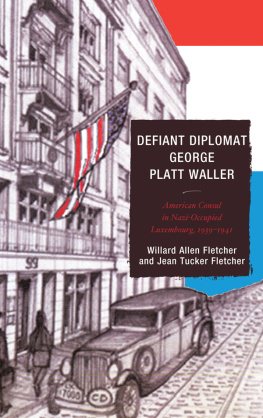
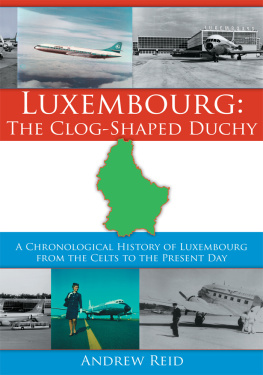



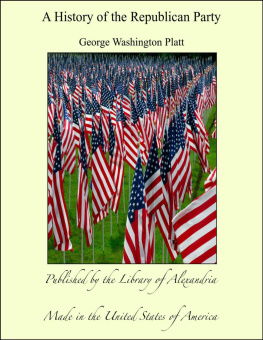

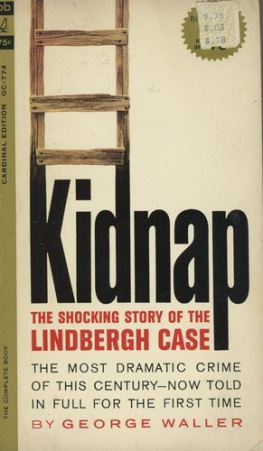


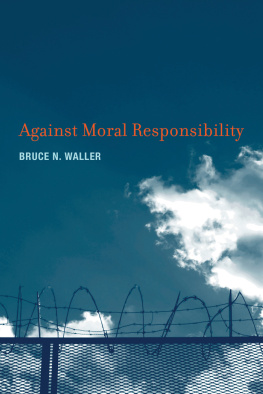

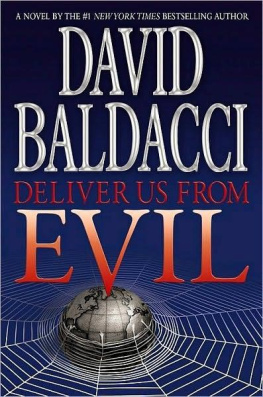
 The paper used in this publication meets the minimum requirements of American National Standard for Information SciencesPermanence of Paper for Printed Library Materials, ANSI/NISO Z39.48-1992.
The paper used in this publication meets the minimum requirements of American National Standard for Information SciencesPermanence of Paper for Printed Library Materials, ANSI/NISO Z39.48-1992.